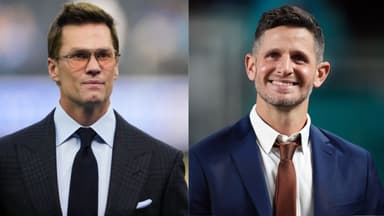Landing a franchise quarterback is arguably the most important thing any team in any sport can do. There is no position more important to its sport than QB. But if they are so vital, why do the greatest minds in NFL football continue to fail at evaluating and identifying them? Dan Orlovsky thinks he has the answer.
Advertisement
Orlovsky spent 12 years in the NFL, but played mostly as a backup, going 2-10 as a starter and starting the bulk of the season for the Detroit Lions in 2008 when they went 0-16. However, while real quarterbacking in the NFL wasn’t Orlovsky’s true calling, working as a pundit and evaluating talent might well be.
He is one of the few current talking heads in the sports media industry who can regularly be relied upon for sensible, well-thought-out arguments.
When asked why, from 2000-2020, only 30 of 60 QBs drafted in the first round signed a second contract with the team that drafted them, Orlovsky said it’s because the most important QB attributes for teams to measure are, ironically, the intangible qualities that can’t be measured.
“The most important things for a quarterback are the ones that you can’t touch, see, record, or measure. The physical comes second… And that’s contrary to every other position… So if you’re a talent evaluator, GM, scout, all those things that you’re looking at for all those other positions, become primary, and it becomes secondary for the quarterback,” Orlovsky said on Get Up.
Why is it difficult to identify a franchise QB?@danorlovsky7 details the answer ⬇️ pic.twitter.com/klbT3waJdN
— Get Up (@GetUpESPN) August 25, 2025
When teams are evaluating guys who play receiver, running back, defensive end, and things like that, the most important part of the evaluation is often related to their physical attributes. But for QBs, it’s the polar opposite.
There are quite literally countless personality traits that are important for a successful QB. But how to measure and predict those intangibles reliably remains a mystery. And not only in sport, but in every industry in the world.
As Orlovsky explained, “It’s about the leadership, it’s about the accountability, it’s about the responsibility, it’s about the intellect, it’s about the processing, it’s about the communication. I don’t know how to measure that, and I think that’s the starting point of why guys and teams get it so, coin-flip, and/or mind.”
Adam Schefter added that on top of the mind, it’s the heart of the quarterback that really matters as well.
But at the end of the day, unless humans somehow develop technology to look inside people’s thoughts and understand their emotions, this is always going to be a roll of the dice. No matter how much experience your GM, coach, or scout has in football.








